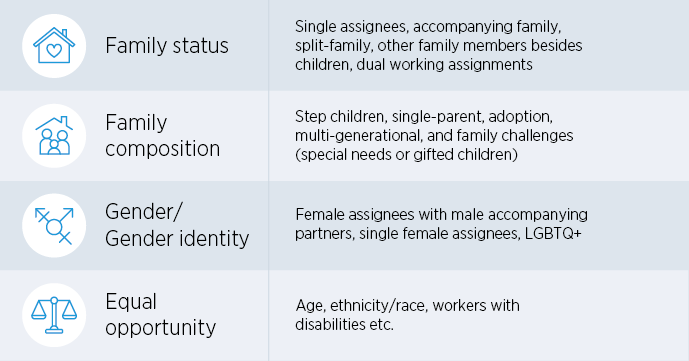How to get started with making your GM programme more inclusive

As we begin to take tentative steps out of the pandemic, one of the ways in which life feels like it has changed is that there has been a real moment of pause and reflection. With two-thirds of businesses planning to increase their diversity and inclusion activities, many global mobility (GM) departments are now looking to take stock of their policies; not only to consider whether they are still fit for purpose, but also how they are to look in the new post-Covid workplace.
Such thoughts were echoed during our Global Mobility Exchanges, a series of virtual discussion sessions we hosted over the last few months, with one client noting: “we are using the momentum of the pandemic to see if we can push things in a new direction.”
It has long been established that mobility is critical to leadership pathways. Therefore, to support broader company DE&I initiatives, global mobility must be proactive in ensuring that everyone has equal access to opportunities; this means careful reflection on the changing composition of the overall workforce and how GM can better support employees with diverse needs.
During our Exchange sessions, we discussed ways in which GM teams might find opportunities within the typical assignment lifecycle to go about embedding inclusion, and better supporting the groups below. This blog will outline some key insights raised during these discussions, and how GM teams should begin to review these populations with the target of championing diversity. 
You could argue that the assignment lifecycle begins before the assignee sets foot in their host country, and even from the moment they consider accepting an assignment or a future where they might be globally mobile. In order to make their GM programmes more inclusive, managers should consider whether the assignment benefits and overall compensation package offered truly represent equity, whilst also reflecting and supporting the needs and wellbeing of a broader candidate pool.
Please click here to continue reading the full blog post.

Please sign in or register for FREE
Sign in OR sign up to become a registered The Forum for Expatriate Management website user
Subscribe here